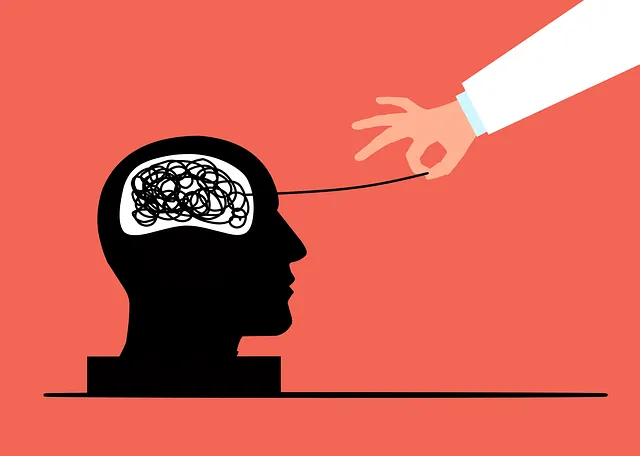Stress, from work, finances, or life changes, takes a toll on both mind and body. Chronic stress leads to anxiety, depression, physical ailments, and weakened immunity. Kaiser Aurora offers specialized inpatient mental health services with holistic approaches like therapy, mindfulness meditation, exercise, and compassion cultivation. A multidisciplinary team creates individualized treatment plans for conditions like depression and anxiety. By combining professional help with daily practices and social connections, individuals gain tools to manage stress, reduce anxiety, and improve overall well-being.
In today’s fast-paced world, stress has become an all-too-common companion. Understanding its causes and effects is the first step towards a healthier, happier life. This article explores effective stress reduction methods, drawing from resources like Kaiser’s inpatient mental health services in Aurora. We delve into mindfulness, meditation, and holistic approaches, offering practical techniques for managing stress daily, while emphasizing long-term well-being.
- Understanding Stress: Causes and Effects
- Kaiser's Inpatient Mental Health Services: An Overview
- Effective Stress Reduction Techniques for Daily Life
- The Role of Mindfulness and Meditation
- Holistic Approaches to Long-Term Stress Management
Understanding Stress: Causes and Effects

Stress is a complex response that arises from various factors, both internal and external. It can be triggered by demanding situations at work, school, or home, leading to physical and emotional strain. Understanding the causes of stress is the first step in implementing effective stress reduction methods. Common stressors include financial worries, relationship issues, health problems, and even positive life changes that require adjustment.
The impact of chronic stress on mental and physical well-being cannot be overstated. Prolonged exposure to stress can contribute to a range of negative effects, such as anxiety disorders, depression, cardiovascular diseases, and weakened immune systems. Recognizing these consequences highlights the importance of developing mood management strategies. Fortunately, building inner strength through practices like mindfulness, exercise, and therapy can empower individuals to navigate stressful situations more effectively and promote overall well-being, even for those seeking options like inpatient mental health services provided by Kaiser in Aurora.
Kaiser's Inpatient Mental Health Services: An Overview

Aurora, much like other urban centers, grapples with stress and mental health challenges. In response, Kaiser, a prominent healthcare provider, offers specialized inpatient mental health services to address these issues. These services cater to individuals in need of intensive care for conditions such as depression, anxiety, or severe stress, providing a safe and structured environment for emotional healing processes.
The program at Kaiser focuses on holistic mood management, combining therapy, medication (when necessary), and other evidence-based practices to offer comprehensive stress reduction methods. Patients are supported by a multidisciplinary team including psychiatrists, psychologists, social workers, and nurses who work collaboratively to create individualized treatment plans. This tailored approach ensures that each patient receives the care they need for their unique mental health journey.
Effective Stress Reduction Techniques for Daily Life

In the quest for a balanced and serene life, incorporating effective stress reduction techniques is paramount. Aurora’s Kaiser, with its inpatient mental health services, offers valuable resources for those navigating mental illness challenges. Beyond seeking professional help, individuals can actively manage stress through various practices tailored to daily routines. Mindfulness meditation, for instance, cultivates present-moment awareness, enabling one to detach from stressful thoughts and embrace a sense of calm. Regular physical activity, such as yoga or even brisk walks, releases endorphins that naturally boost mood and reduce anxiety levels.
Additionally, fostering social connections and engaging in hobbies can serve as powerful coping skills development tools. Building a support system of understanding friends or joining communities centered around shared interests provides a sense of belonging and helps alleviate the burden of stress. As part of mental illness stigma reduction efforts, it’s crucial to recognize that acknowledging and managing stress is not a sign of weakness but rather a proactive step towards enhancing overall well-being. Crisis intervention guidance from resources like Kaiser can empower individuals with the tools needed to navigate stressful situations effectively.
The Role of Mindfulness and Meditation

In today’s fast-paced world, stress has become an all too common companion for many. This is where practices like mindfulness and meditation step in as powerful tools to restore mental balance. Aurora does Kaiser have inpatient mental health services that often incorporate these ancient techniques into their programs, recognizing their effectiveness in managing anxiety and promoting relaxation.
Mindfulness involves focusing on the present moment without judgment, while meditation cultivates awareness through controlled breathing and thought observation. These practices are not just about calming the mind; they also foster cultural competency among healthcare providers. By integrating mindfulness meditation into therapy sessions, Trauma Support Services can create a safe space for individuals to process their experiences, leading to improved mental health outcomes.
Holistic Approaches to Long-Term Stress Management

Stress management is a holistic journey that involves nurturing both the mind and body for long-lasting results. Aurora’s Kaiser offers inpatient mental health services as part of its comprehensive approach to addressing severe or chronic stress. Beyond traditional therapy, this approach integrates various practices aimed at fostering mental wellness. The Mental Wellness Podcast Series Production provides valuable insights into these techniques, highlighting the importance of a multi-faceted strategy for effective stress reduction.
Practices such as compassion cultivation, inspired by mindfulness and meditation traditions, are increasingly recognized for their positive impact on mental health awareness and overall well-being. By encouraging empathy and understanding towards oneself and others, these methods promote a sense of calm and resilience in the face of stressful situations. Incorporating compassion cultivation into daily routines can be a game-changer for those seeking sustainable stress management solutions.
In understanding the multifaceted nature of stress, this article has explored various methods for its reduction, from traditional techniques like mindfulness and meditation to holistic approaches that integrate multiple facets of wellness. As Aurora residents consider their options for managing stress, it’s worth noting that Kaiser’s inpatient mental health services offer a specialized haven for those in need of intensive care. Ultimately, combining these strategies with access to quality mental health resources can empower individuals to navigate life’s challenges with greater resilience and overall well-being.






